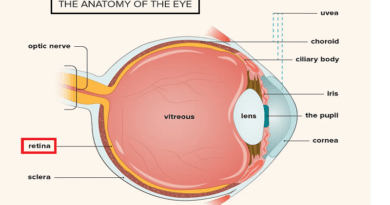Cardiovascular Disease (CVD): One of the Leading Causes of Death Globally
Last Updated on 02/09/2026 by Helal Medical
Cardiovascular disease (CVD) is a collective term for a group of disorders that affect the heart and blood vessels. It includes conditions such as coronary artery disease, heart failure, stroke, and peripheral artery disease. Despite significant advances in medical knowledge and technology, CVD continues to be a major health concern worldwide, responsible for a substantial number of deaths each year. In this article, we will explore the prevalence, risk factors, impact, and preventive measures related to cardiovascular disease, emphasizing the importance of early detection, lifestyle modifications, and proper medical care.
The Global Burden of Cardiovascular Disease
Cardiovascular disease is a significant global health challenge, with an enormous impact on individuals, families, and healthcare systems. According to the World Health Organization (WHO), CVD is the leading cause of death worldwide, accounting for more deaths annually than any other disease. It affects both developed and developing countries, placing a considerable burden on economies and societies.
Risk Factors for Cardiovascular Disease
Several risk factors contribute to the development of cardiovascular disease, both modifiable and non-modifiable. Non-modifiable risk factors include age, gender, and family history of CVD. Modifiable risk factors, on the other hand, can be influenced and managed through lifestyle changes and medical interventions. These include high blood pressure, high cholesterol levels, smoking, obesity, physical inactivity, diabetes, unhealthy diet, and excessive alcohol consumption.
The Impact of Cardiovascular Disease (CVD)
Cardiovascular disease not only affects individuals physically but also has far-reaching implications for their quality of life, productivity, and emotional well-being. The burden of CVD extends beyond the affected individuals to their families, caregivers, and society as a whole. The consequences of CVD can include physical disability, reduced mobility, decreased cognitive function, and a higher risk of other health complications.
Prevention and Management
Prevention and management strategies play a crucial role in reducing the impact of this disease. Prevention efforts primarily focus on addressing modifiable risk factors through lifestyle modifications and public health interventions. These include promoting healthy eating habits, regular physical activity, smoking cessation programs, and the effective management of conditions such as hypertension and diabetes.
Early Detection and Treatment
Early detection of Cardiovascular disease (CVD) is essential for timely intervention and improved outcomes. Regular health check-ups, including blood pressure measurements, cholesterol level assessments, and screening for diabetes, can aid in identifying individuals at risk. Additionally, diagnostic tests such as electrocardiograms, stress tests, and imaging studies can provide valuable insights into the presence and severity of CVD.
SUMMARY
Cardiovascular disease (CVD) remains a global health challenge, accounting for a significant number of deaths worldwide. While the burden of CVD is substantial, it is important to recognize that many risk factors are modifiable through lifestyle changes and appropriate medical care. Promoting awareness, early detection, and implementing preventive measures are crucial steps in reducing the impact of cardiovascular disease. By embracing a heart-healthy lifestyle, seeking regular medical check-ups, and adhering to prescribed treatments, individuals can significantly improve their cardiovascular health and reduce the risk of CVD-related complications. Through collective efforts, including research, public health initiatives, and individual commitment, we can work towards a future where the prevalence and impact of cardiovascular disease are minimized, ultimately leading to healthier hearts and longer lives.
If you have questions you can drop them below in the comment section. You can contact us here: Google page – Helalmedical, or Facebook page. We offer quick and convenient testing options.
Discover more from Helal Medical Manila
Subscribe to get the latest posts sent to your email.


